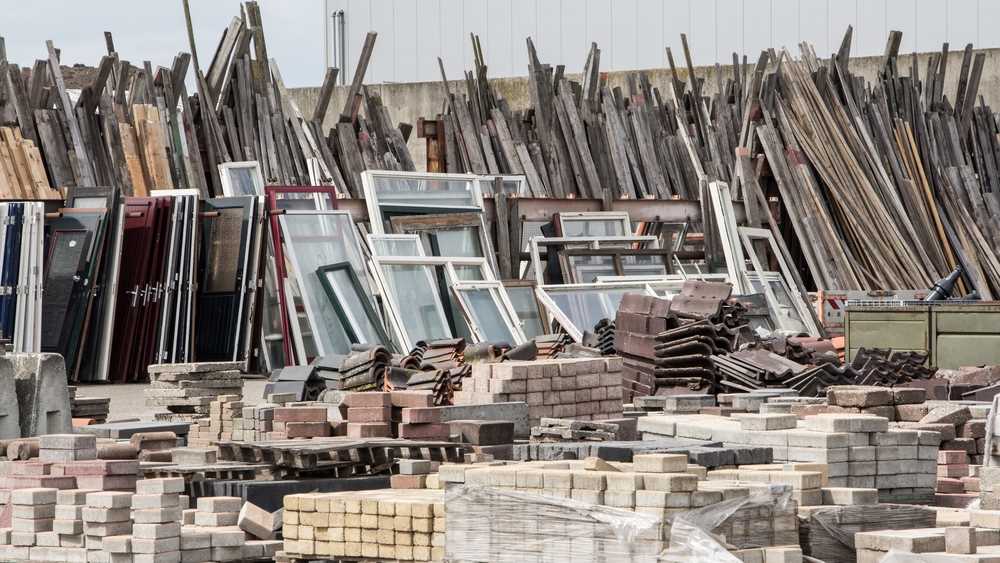Recycling Construction Materials

The construction industry is looking for ways to mitigate its environmental impact, now that governments and businesses are giving more importance to sustainability. Construction waste causes significant damage, since it accounts for about one-third of all refuse nationwide. Recycling construction materials can significantly reduce the environmental impact of the industry.
Traditionally, construction and demolition waste has been disposed of in landfills. However, this has a negative environmental impact, contaminating underground water and surrounding habitats. Construction companies and developers are learning that recycling is beneficial for the entire industry.
Recyclable Construction Materials
The best way to recycle construction waste is using it in new projects, and there are many construction materials that can be recycled. The following are some examples:
- Concrete
- Metals
- Asphalt
- Wood and untreated timber
- Glass
- Paper and Cardboard
- Gypsum
- Masonry
- Appliances and fixtures, such as sinks and bathtubs
- Windows, doors, and roofing
- Vegetation and trees
- Plastics
Environmental Benefits from Recycling Construction Materials
Energy Savings: Recycling saves large amounts of energy, and in general it decreases the consumption of natural resources to produce new materials. For example, if all the concrete and asphalt waste generated annually in the US were recycled, it would save the energy equivalent of 1 billion gallons of gasoline.
Landfill waste reduction: Landfills are filling up, which means that alternative ways to manage waste must be developed. Recycled construction waste can be reused as it is, or turned into something new.
Economic Benefits of Recycling Construction Materials
Cost Savings: Recycling and reusing construction materials reduces the cost of disposal and transportation. Some recycling organizations even charge less compared with conventional disposal methods. Recycling also reduces the demand for new resources, which also cuts transportation and production costs.
Green Certifications: Construction companies that recycle materials have a competitive edge, due to the increasing importance of green building and environmental conservation. Recycling can help building owners earn points for LEED certification, which is the most popular green building rating system.
Tips for Recycling Construction Materials

Planning
Like any aspect of a project, recycling should be carefully planned before starting. Organizations such as environmental agencies can help you implement best practices for your project, while making sure it follows local regulations.
Recycling Regulations
Understanding local waste and landfill rules is necessary before starting any project. Municipal solid waste departments can provide the necessary information, including the use of landfills and recycling guidelines.
Using Standard Dimensions
When designing a new building, consider using the standard dimensions of common materials. This reduces the cutting required, producing less waste during construction, while also saving time and labor.
Local Recycling Centers
Recycling centers can help you dispose of construction waste, but make sure you analyze the distances involved. If the center is located far from your project, consider other alternatives. Waste deliveries to a recycling center can be planned along with large material purchases and other project activities, saving on transportation.
Recycling centers have rules and regulations; make sure you ask which materials are accepted and if separation is required.
Deconstruction
Another way to reduce construction waste is with deconstruction, also known as selective dismantling. There are some organizations that separate construction materials and reuse them for social housing projects, which provides tax advantages. Another option for small projects like house renovations is selling the recycled materials directly.
Estimating Cost Savings
As mentioned before, recycling construction materials is not only beneficial for the environment. It also opens opportunities for cost savings and higher profits. The savings from recycling can be tracked as part of your normal accounting process.
Get a green design for your next building project and reduce waste.
Conclusion
Recycling construction materials provides an opportunity to achieve cost savings. These savings include the cost of new materials, and also transportation and disposal costs. The use of recycled materials also results in energy savings and reduced carbon emissions.
Green building practices are gaining popularity, and many developers are seeking LEED certification. Recycling and other environmentally sustainable practices can help earn points under the LEED system.
Nearby EngineersNew York Engineers has a MEP design track record of 1,000+ projects. Contact us via email (info@ny-engineers.com) or phone (786) 788-0295212-575-5300, and make sure your building systems meet codes.

Anuj Srivastava
Anuj Srivastava is a principal partner at NY Engineers. He is known for his MEP franchise market knowledge. Anuj is currently leading a team of 100+ MEP/FP engineers and has successfully led over 1500 franchise projects in the US.
Join 15,000+ Fellow Architects and Contractors
Get expert engineering tips straight to your inbox. Subscribe to the NY Engineers Blog below.



